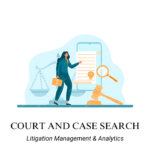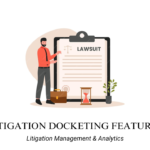Introduction
Meaning
Budget, expense, and time tracking feature is a crucial functionality within litigation management and analytics tools that enables legal teams to effectively manage and monitor financial aspects related to legal matters. This functionality involves tracking the budget allocated to a case, recording expenses incurred, and monitoring the time spent on various legal tasks. It provides a comprehensive view of the financial resources and time invested in legal proceedings, allowing for better cost control and resource allocation. The ability to track and manage these elements is vital for ensuring that legal projects stay within budget, meet financial goals, and maximize profitability.
Purpose
The purpose of budget, expense, and time tracking feature is to provide transparency and control over the financial aspects of legal cases. This functionality helps legal teams maintain adherence to budgets, accurately track expenses, and monitor billable hours, ensuring that resources are used efficiently and effectively. By managing these financial elements closely, legal professionals can better predict costs, manage client expectations, and provide detailed reporting on the financial status of a case. Additionally, it helps firms improve profitability and accountability by identifying cost-saving opportunities and optimizing the use of time and resources.
Benefits
- Financial Transparency: Provides a clear view of the financial status of each legal matter, including budget usage and remaining funds.
- Cost Control: Enables better management of expenses, reducing the risk of budget overruns and ensuring financial discipline.
- Resource Optimization: Helps allocate time and financial resources more effectively, enhancing productivity and profitability.
- Accurate Invoicing: Ensures accurate tracking of billable hours and expenses, leading to precise client invoicing and better client relationships.
- Compliance and Accountability: Supports compliance with internal and external financial regulations and enhances accountability through detailed financial reporting.
CHECK MORE: Guide to find best Litigation Management & Analytics Tools for Lawyers
Features
Budget Management
- Meaning: Budget management is a feature that allows legal teams to set, monitor, and adjust budgets for specific legal matters. It involves planning the financial resources needed for a case and tracking actual expenditures against the budgeted amounts.
- Purpose: The purpose of budget management is to ensure that legal cases are conducted within the financial limits set by the organization or client. This feature helps legal teams manage costs effectively, avoid overspending, and ensure that financial resources are allocated appropriately across different phases of a case.
- Use Cases:
- Litigation Planning: A law firm uses budget management to forecast the financial needs of a high-profile litigation case, setting limits for various phases such as discovery, depositions, and trial preparation.
- Client Budget Monitoring: A legal department of a corporation uses budget management tools to track legal spending across multiple ongoing cases, ensuring that each case stays within the allocated budget and adjusting as needed.
Time Tracking
- Meaning: Time tracking is a feature that enables legal professionals to record the time spent on various tasks and activities related to a legal matter. This includes tracking billable hours and non-billable time to ensure accurate reporting and invoicing.
- Purpose: The purpose of time tracking is to provide a detailed account of how time is spent on each case, facilitating accurate billing and improving productivity analysis. It helps legal teams understand how much time is being devoted to specific activities, which can inform decisions about resource allocation and case management.
- Use Cases:
- Billing Accuracy: A law firm uses time tracking software to ensure that all billable hours spent on a client’s case are accurately recorded and invoiced, preventing revenue loss due to unbilled hours.
- Productivity Analysis: A legal team analyzes time tracking data to identify inefficiencies and optimize workflow, helping to improve overall productivity and reduce time wastage.
Approval Management
- Meaning: Approval management is a feature that streamlines the process of approving expenses, time entries, and budgets related to legal cases. It typically includes workflows for submitting requests for approval and obtaining necessary authorizations from stakeholders.
- Purpose: The purpose of approval management is to ensure that all expenses and time entries are reviewed and approved in a controlled and systematic manner. This helps prevent unauthorized spending, ensures compliance with financial policies, and provides a clear audit trail of approvals.
- Use Cases:
- Expense Control: A corporate legal department uses approval management to regulate spending by requiring that all expense submissions, such as travel or expert witness fees, receive managerial approval before being processed.
- Time Entry Validation: A law firm implements approval workflows for time entries, ensuring that billable hours are reviewed and verified by supervisors before being invoiced to clients.
Client Invoicing
- Meaning: Client invoicing is a feature that automates the process of generating invoices for legal services provided. This includes creating detailed invoices that outline billable hours, expenses incurred, and any other costs associated with a legal matter.
- Purpose: The purpose of client invoicing is to ensure that clients are billed accurately and promptly for the services rendered. This feature helps maintain financial transparency with clients, facilitates timely payments, and improves cash flow management for law firms.
- Use Cases:
- Automated Billing: A law firm uses client invoicing tools to automatically generate and send invoices to clients based on tracked billable hours and recorded expenses, reducing administrative overhead and improving billing accuracy.
- Detailed Reporting: A legal consultancy provides clients with detailed invoices that include breakdowns of hours worked by different team members and expenses by category, enhancing client satisfaction and trust.
Payment Processing
- Meaning: Payment processing is a feature that facilitates the collection of payments from clients, integrating with financial systems to ensure seamless handling of payments and reconciliation of accounts.
- Purpose: The purpose of payment processing is to streamline the financial transactions between law firms and their clients, ensuring that payments are collected efficiently and securely. It supports various payment methods and provides an easy way to track payments against invoices, enhancing cash flow management.
- Use Cases:
- Secure Transactions: A law firm utilizes payment processing software that supports credit card payments, ACH transfers, and online payments, ensuring secure and efficient collection of fees from clients.
- Reconciliation: A legal finance team uses payment processing tools to automatically reconcile payments received with outstanding invoices, reducing manual errors and improving financial accuracy.
Conclusion
These features within the budget, expense, and time tracking functionality are essential for effective financial management in legal settings. By leveraging these tools, legal teams can ensure that their cases are managed within financial constraints, improve profitability, maintain compliance, and provide better service to their clients.
CHECK OUT LITIGATION MANAGEMENT TOOLS ON DIRECTORY OR CLICK HERE

